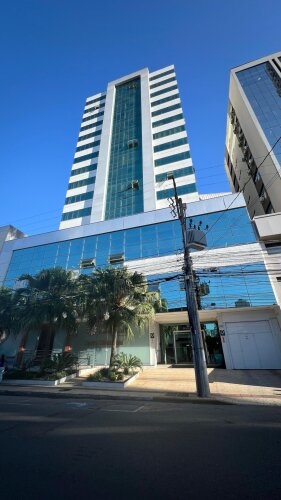Best General Litigation Lawyers in Itajaí
Share your needs with us, get contacted by law firms.
Free. Takes 2 min.
List of the best lawyers in Itajaí, Brazil
About General Litigation Law in Itajaí, Brazil
General Litigation in Itajaí, Brazil, encompasses a broad range of legal disputes resolved through the judicial system. This area of law includes civil, commercial, and sometimes administrative matters, handled according to Brazilian federal and local statutes. Itajaí, as part of the state of Santa Catarina, follows the Brazilian Civil Procedure Code (Código de Processo Civil) along with specific regional regulations.
Typical litigation cases involve contractual disputes, consumer claims, property matters, debt recovery, and business disagreements. The court system in Itajaí provides several avenues for resolving these disputes, from conciliation and mediation to full trials. The process is usually formal and structured, with procedures that must be carefully followed to ensure a fair outcome.
Why You May Need a Lawyer
Legal disputes can be complex and challenging without professional assistance. Here are some common situations where individuals or businesses in Itajaí might need a General Litigation lawyer:
- Recovering debts or unpaid invoices
- Resolving contractual disputes with companies or individuals
- Handling property disagreements, such as boundary or ownership issues
- Filing or defending against consumer complaints
- Addressing damages from accidents or negligence
- Facing lawsuits from business partners or third parties
- Dealing with construction or real estate litigation
- Managing inheritance and succession conflicts
A qualified lawyer can help interpret the law, evaluate case merits, prepare necessary documentation, represent your interests in court, and guide you toward the best resolution.
Local Laws Overview
General Litigation in Itajaí follows the framework set by Brazil’s federal laws and the Constitution. The key legal instrument is the Civil Procedure Code, which sets out how lawsuits are filed, evidence is presented, and judgments are enforced. In addition to national laws, certain state-level statutes and local practices can affect how cases are handled in the Itajaí judicial district.
Local courts in Itajaí operate with processes designed to encourage settlement before trial whenever possible. Methods like conciliation and mediation are often required in the early stages. Access to the courts is public, but parties must observe procedural formalities for the court to consider their cases, including filing within applicable deadlines, using the correct format, and following judicial decisions.
When federal matters are involved, such as international business disputes or those crossing state borders, federal courts may have jurisdiction. However, most general litigation issues in Itajaí are handled by the local State Courts.
Frequently Asked Questions
What is General Litigation?
General Litigation refers to legal disputes between private parties (individuals or businesses) usually resolved in civil courts. The issues can involve contracts, property, debts, or damages.
How do I start a lawsuit in Itajaí?
To start a lawsuit, you need to file a petition with the local court summarizing your claim, relevant facts, and any supporting documents. Consulting a lawyer is highly recommended to ensure your petition meets all formal requirements.
Do I always need to go to court for disputes?
Not necessarily. Many cases are resolved through negotiation, conciliation, or mediation before reaching trial. The courts in Itajaí often encourage such resolutions to prevent lengthy litigation.
What is the typical duration of a litigation case in Itajaí?
The duration varies depending on complexity, but most cases take several months to a few years from filing to final judgment. Cases resolved by settlement or conciliation can conclude much faster.
Who pays the legal costs and attorney fees?
Typically, each party pays their own legal costs upfront. However, the losing party may be ordered by the judge to cover the winner’s attorney fees and court costs, depending on the specifics of the case.
What evidence do I need for my case?
Evidence might include written documents, contracts, invoices, witness statements, photographs, and expert reports. Your lawyer can help you gather and present the most relevant evidence to support your claim.
Can I appeal a court decision in Itajaí?
Yes, if you disagree with the initial judgment, you usually have the right to appeal to a higher court within specified deadlines. The appeal process can add additional time to the resolution of your dispute.
What happens if the other party does not comply with the judgment?
If the losing party fails to comply, the court can enforce the judgment through measures like property seizure, asset freezing, or salary garnishment, depending on the type of case.
Are court hearings public in Itajaí?
Most court hearings and judgments are public, except for cases involving minors or sensitive information, which may be restricted to protect privacy.
Can foreign nationals or non-residents litigate in Itajaí courts?
Yes, foreign nationals and non-residents can file lawsuits and defend their interests in Itajaí courts, provided the dispute involves the local jurisdiction or relevant parties.
Additional Resources
If you need further information or assistance in General Litigation, consider these resources and institutions:
- OAB/SC - Ordem dos Advogados do Brasil, Seccional Santa Catarina (Santa Catarina Bar Association)
- Fórum da Comarca de Itajaí (Local Court complex for civil and commercial disputes)
- Defensoria Pública do Estado de Santa Catarina (Public Defender’s Office, providing legal aid for those who qualify)
- Tribunal de Justiça de Santa Catarina (State Court of Justice for appeals and guidance)
- Consumer Protection Agencies (Procon), for consumer related disputes
Next Steps
If you need legal assistance for General Litigation in Itajaí, start by collecting all relevant documentation regarding your dispute. Write a summary of what happened and the outcome you seek. Then reach out to a local lawyer who specializes in litigation or contact the OAB/SC to find a qualified professional. If you cannot afford a private lawyer, inquire with the Public Defender’s Office about eligibility for free legal aid. Prepare for your first meeting by organizing your questions and bringing copies of all relevant materials. Taking these steps will ensure you are ready to navigate the litigation process with confidence and appropriate support.
Lawzana helps you find the best lawyers and law firms in Itajaí through a curated and pre-screened list of qualified legal professionals. Our platform offers rankings and detailed profiles of attorneys and law firms, allowing you to compare based on practice areas, including General Litigation, experience, and client feedback.
Each profile includes a description of the firm's areas of practice, client reviews, team members and partners, year of establishment, spoken languages, office locations, contact information, social media presence, and any published articles or resources. Most firms on our platform speak English and are experienced in both local and international legal matters.
Get a quote from top-rated law firms in Itajaí, Brazil — quickly, securely, and without unnecessary hassle.
Disclaimer:
The information provided on this page is for general informational purposes only and does not constitute legal advice. While we strive to ensure the accuracy and relevance of the content, legal information may change over time, and interpretations of the law can vary. You should always consult with a qualified legal professional for advice specific to your situation.
We disclaim all liability for actions taken or not taken based on the content of this page. If you believe any information is incorrect or outdated, please contact us, and we will review and update it where appropriate.













